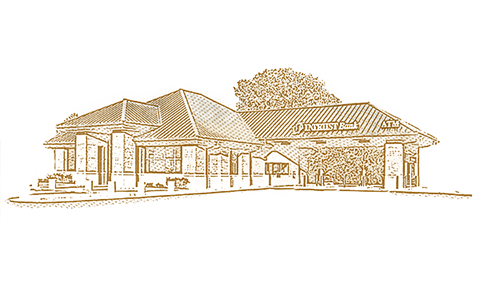Overdraft Protection

Prevent overdraft fees
An overdraft occurs when you don't have enough money in your account to cover a transaction, but we pay it anyway. Considering the alternative, it's best to have coverage and never need it.
We can cover your overdrafts in two different ways

Bounce Blocker
Overdraft Protection Plans
Eliminate any worry about insufficient funds and multiple fees by transferring funds to your checking account from any of the following account types: INTRUST Savings, Money Market or Other Checking Account. Funds are withdrawn from your savings, money market or other checking account as needed. To designate an account or accounts for overdraft protection, contact Customer Service.
Bounce Blocker1
On the occasion you find yourself a little short in your account, INTRUST Bounce Blocker1 can save you the cost and inconvenience of returned checks or declined transactions.
If you are handling your account in a responsible manner, we may consider, at our discretion, providing Bounce Blocker on your account and paying items that overdraw your account.2 INTRUST Bounce Blocker may be activated when your account is overdrawn by writing a check; making an in-person withdrawal or an automated payment; or other transaction using your checking account number.3
We may also pay, at our discretion, ATM transactions and debit card transactions if you have opted in for this service.4
If we have previously paid one of your items into overdraft, we cannot guarantee that we will pay future items into overdraft.5
If you enroll in an overdraft protection plan, INTRUST Bounce Blocker will be secondary to this service.
Understanding Your Available Balance
Your available balance is the amount of funds available to you for withdrawal or transfer without causing an overdraft. This balance is equal to the current balance minus any funds being held in reserve until transactions clear. For example:

| Starting balance:6 | 1,780.17 |
|---|---|
| Today's activity: | -174.34 |
| ___________ | |
| Current balance: | 1,605.83 |
| Holds: | -35.76 |
| Funds being held until transactions clear: | |
| Deposited checks in process: | |
| Deposited checks that have not yet cleared: | -250.00 |
| ___________ | |
| Available balnce: | 1,320.07 |
Ways to Avoid Overdrafts

The easiest way to avoid overdrafts is be cautious not to spend more than you have in your account. Here are a few ways to help keep your account balance in check.
- Monitor your account activity with INTRUST Personal Online and Mobile banking. You can access your account 24 hours a day, 7 days a week for a comprehensive view of your account activity.7
- Use online banking to set up email and text alerts for when your account has reached a set minimum balance threshold.
- Keep track of fees or interest that may be applied to your account by reviewing your statement each month.
Frequently Asked Questions

- You may opt out of Bounce Blocker by visiting any INTRUST Bank location or by phone.
- If you have insufficient funds in your account for a transaction and Bounce Blocker funds are used, the funds will be automatically advanced. You will not receive prior notice of the advancement of funds, the overdraft of your account, or the charging of the overdraft fee(s).
- If you have insufficient funds in your account for a transaction and Bounce Blocker funds are used, the funds will be automatically advanced. You will not receive prior notice of the advancement of funds, the overdraft of your account, or the charging of the overdraft fee(s). Your account will be charged a per-item overdraft/non-sufficient funds fee of $35. This fee of $35 for ATM and one-time debit card transactions will only be charged on your consumer account, if you have agreed to such fees. Multiple fees may apply. Fees are included in the daily account limit.
- Your account will be charged a per-item overdraft/non-sufficient funds fee of $35. Multiple fees may apply. Fees are included in the daily account limit.
- Transactions will not be processed in the order in which they occurred. Order of processing will affect the total amount of overdraft fees. Please refer to the Deposit Agreement for additional information on Processing. You agree to pay us the amount of any overdraft, including fees, immediately.
- Transactions will not be processed in the order in which they occurred. Your account balance may not reflect unprocessed ATM and debit card transactions, checks you have issued but have not reached the bank or any additional purchases or transactions which you have made but have not reached the bank. A portion of your balance may not be available for immediate withdrawal. Please refer to the Deposit Agreement for additional information on Processing. Order of processing will affect the total amount of overdraft fees. You agree to pay us the amount of any overdraft, including fees, immediately.
- Transactions appearing on Online Banking or Mobile Banking will not be in order in which they will be processed. Transactions will also not be processed in the order in which they occurred. Your account balance appearing on Online Banking or Mobile Banking may not reflect unprocessed ATM and debit card transactions, checks you have issued but have not reached the bank or any additional purchases or transactions which you have made but have not reached the bank. A portion of your balance may not be available for immediate withdrawal. Order of processing will affect the total amount of overdraft fees.


.png?Status=Temp&sfvrsn=91c53d6b_2)